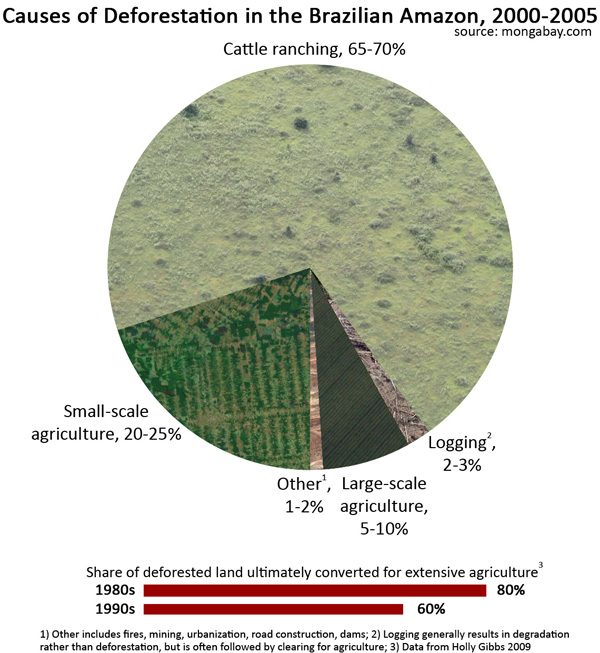A recent ABC News-Washington Post poll shows Americans oppose building more nuclear power plants in the United States, by a margin of 2-1. This is an 11-point increase in opposition, up from a few years ago.
In the aftermath of Japan’s nuclear plant crisis, 64 percent in this ABC News/Washington Post poll now oppose new nuclear plant construction, while 33 percent support it. “Strong” opposition outstrips strong support, 47-20 percent. Opposition is up from 53 percent in a 2008 poll, and strong opposition is up even more, by 24 points.
This ABC News-Washington Post poll was conducted by telephone April 14-17, 2011, among a random national sample of 1,001 adults, including landline and cell-phone-only respondents. Results have a margin of sampling error of 3.5 points. The survey was produced for ABC News by Langer Research Associates of New York, N.Y, with sampling, data collection and tabulation by TNS of Horsham, Pa. Click here to check out the charts and questionnaire.
This poll reflects changing public attitudes that goes beyond a not-in-my-back-yard phenomenon. The survey finds that while 67 percent of Americans oppose construction of a nuclear plant within 50 miles of their home, this number is not significantly different than the number who oppose it regardless of location. Opposition also appears to be bipartisan, with majorities of Democrats, Republicans and independents alike opposed to new nuclear plant construction.
Still, there are differences among groups; opposition is higher among Democrats (75 percent, vs. 59 percent of Republicans and independents combined), women (73 percent, vs. 53 percent of men) and liberals (74 percent, vs. 60 percent of moderates and conservatives).
In the past, support for building nuclear plants has fluctuated, showing sensitivity to nuclear crises. In the mid-1970’s when nuclear plant building was booming 61 percent supported nuclear power, however support fell sharply after the Three Mile Island accident in 1979 and bottomed out at just 19 percent in May 1986 after the Chernobyl crisis (whose 25th anniversary will be marked next week).
Most Americans do not say that nuclear power is unsafe, but the subtle difference in their perception of how safe nuclear plants are plays into whether or not they support the building of new nuclear plants. Indeed, 53 percent of Americans said that nuclear power is safe overall, 11 points above the immediate post-Chernobyl level. But only 23 percent see it as “very safe,” which apparently is what’s needed to sustain public support, and very justly so, given the potential consequences should a plant prove unsafe. Among people surveyed who think nuclear power plants are very safe, 84 percent favor building new ones. But that falls to 33 percent of those who just think it’s only somewhat safe. And those who think it’s unsafe are nearly unanimous (93 percent) in their opposition.
Not surprisingly, 42 percent say the crisis in Japan has made them less confident in the safety of nuclear power overall; 51 percent say it’s had no effect. This, too, ties in closely with support for construction: Among those who are less confident now, 84 percent oppose building new plants. Among those whose opinions haven’t changed, opposition falls to 48 percent.
These changing attitudes toward nuclear power have been reflected in recent events that include:
- NRG’s decision to write off their investment in a proposed expansion of theSouth Texas(Nuclear) Project, effectively killing that project.
- In a contested case brought by the Nuclear Information and Resource Service (NIRS), the NRC Licensing Board, said that UniStar Nuclear is not eligible to build a reactor in theU.S.ordered UniStar and the NRC Staff to show cause as to why they shouldn’t rule in NIRS’ favor, and deny a construction license for Calvert Cliffs-3.
- Rep. Ed Markey (D-Mass.) has introduced HR 1242, a nuclear bill that would:
- Ensure that nuclear power plants and spent nuclear fuel pools can withstand and adequately respond to earthquakes, tsunamis, strong storms, long power outages, or other events that threaten a major impact.
- Require nuclear power plants to have emergency backup plans and systems that can withstand longer electricity outages.
- Require spent nuclear fuel to be moved into safer dry cask storage as soon as the fuel is sufficiently cooled to do so.
- Require the Department of Energy to factor in the lessons learned from the Fukushima melt down when calculating the risk of default on loan guarantees for new nuclear power plants.
These are all pretty dramatic changes from what was happening in this country, with respect to the nuclear renaissance, just over a month ago. It took 20 years for the memory of Chernobyl to fade enough for the industry to take up the mantle of promoting a nuclear expansion in this country as the panacea for our varied energy woes that included high oil prices, environmental concerns prompted by the Gulf oil spill a year ago and efforts to curb greenhouse gas emissions. The ongoing nuclear disaster at Fukushima is showing the world that when things do go wrong, the costs of nuclear in terms of high prices, and environmental concerns are higher than people want to pay.



 The
The 

 A
A 
 The Texas Progressive Alliance reminds you that it does not shut down as it brings you this week’s blog roundup.
The Texas Progressive Alliance reminds you that it does not shut down as it brings you this week’s blog roundup.


